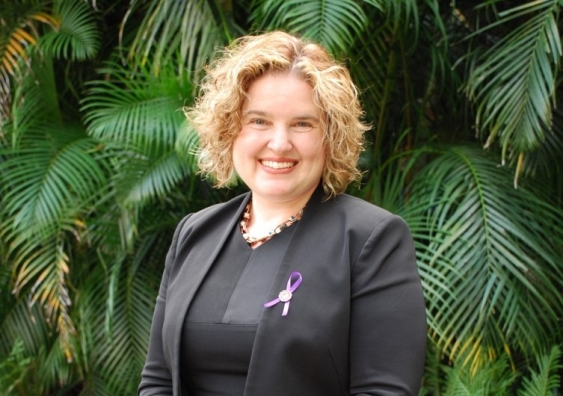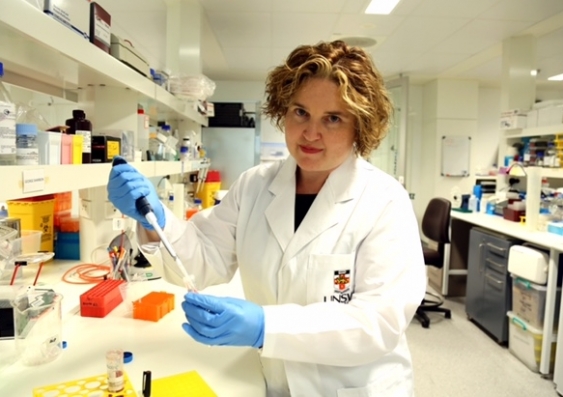Top UNSW biomedical researcher wins Eisenhower Fellowship
Leading pancreatic cancer expert and health policy advocate Associate Professor Phoebe Phillips has received a 2019 Eisenhower Fellowship.
Leading pancreatic cancer expert and health policy advocate Associate Professor Phoebe Phillips has received a 2019 Eisenhower Fellowship.

Lucy Carroll
UNSW External Communications
9385 8732, 0402 005 319
l.carroll@unsw.edu.au
UNSW Sydney biomedical researcher Associate Professor Phoebe Phillips has been awarded a prestigious international Eisenhower Fellowship, making her the 22nd Australian to receive the award in its 65-year history. She will join 24 other outstanding leaders to be awarded the prize in 2019.
Associate Professor Phillips, from UNSW’s Lowy Cancer Research Centre, will meet with US business and political leaders and top pharmaceutical industry executives early next year to work on bridging the gap between academia and industry collaborations, particularly with big pharma. The project will focus on boosting the connections between academic research and industry to maximise opportunities to transform fundamental research into a commercial product or application.
“I am extremely humbled and inspired to stand alongside outstanding leaders who have made a significant impact and brought about global change,” said Associate Professor Phillips.
About 2400 fellows from more than 100 countries have participated in Eisenhower Fellowships since the program was established in 1953 as a tribute to Dwight D. Eisenhower. The aim of the program is to connect innovative leaders from around the world and across professional disciplines who display vision and passion to pursue projects with real impact on societies.

Associate Professor Phoebe Phillips has won a 2019 Eisenhower Fellowship.
“The US has a strong track record of commercialisation and forging partnerships between industry and academia. Being able to visit large global pharma, US government health and medical researcher funders and universities is crucial to understanding how Australia can fill the gaps in the leap from lab discovery to clinical application,” said Associate Professor Phillips.
“Some of the major challenges we face in Australia are trying to improve government policies to better foster industry partnerships, including government incentives, how to identify intellectual property early and how to manage complex issues of IP that come when research joins with industry,” she said.
Associate Professor Phillips plans to develop an education program and policy recommendations for government, based on experience and knowledge gained during the fellowship which will include visits to the National Cancer Institute and National Institutes of Health.
“Building collaborations between researchers and big pharma will contribute to overall improvements in the health and well-being of Australians, the speed of drug development and improving clinical trials,” said Associate Professor Phillips. “More engagement between academia and industry partners will open up avenues to bolster research funding through partnership grants.”
Associate Professor Phillips is heavily involved in a volunteer capacity as an advocate for health policy change, in addition to leading an independent research group, the Pancreatic Cancer Translational Research Group, and is Deputy Director of the Adult Cancer Program at the Lowy Cancer Research Centre at UNSW Medicine. As an leader in cancer cell biology, novel therapeutics and nanomedicine, Associate Professor Phillips’ research program focuses on tackling pancreatic cancer, which has the highest mortality rate of all the major cancers.
Associate Professor Phillips has been instrumental in influencing health and medical research policy in Australia over the past 10 years. She contributed, with other national experts, to a structural review of the National Health and Medical Research Council (NHMRC) funding program to better support next generation of health and medical researchers in Australia. As past President of the Australian Society for Medical Research (ASMR), Associate Professor Phillips helped drive the formation and policy of the Medical Research Future Fund (MRFF) in 2015 – an investment fund with expected distributions of around $1 billion a year by 2022-23.